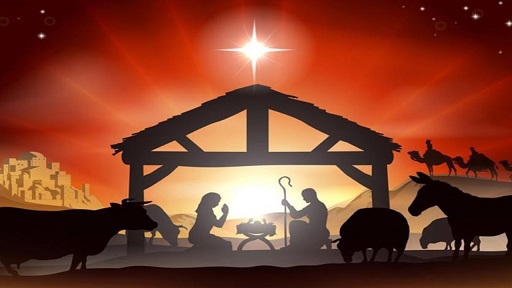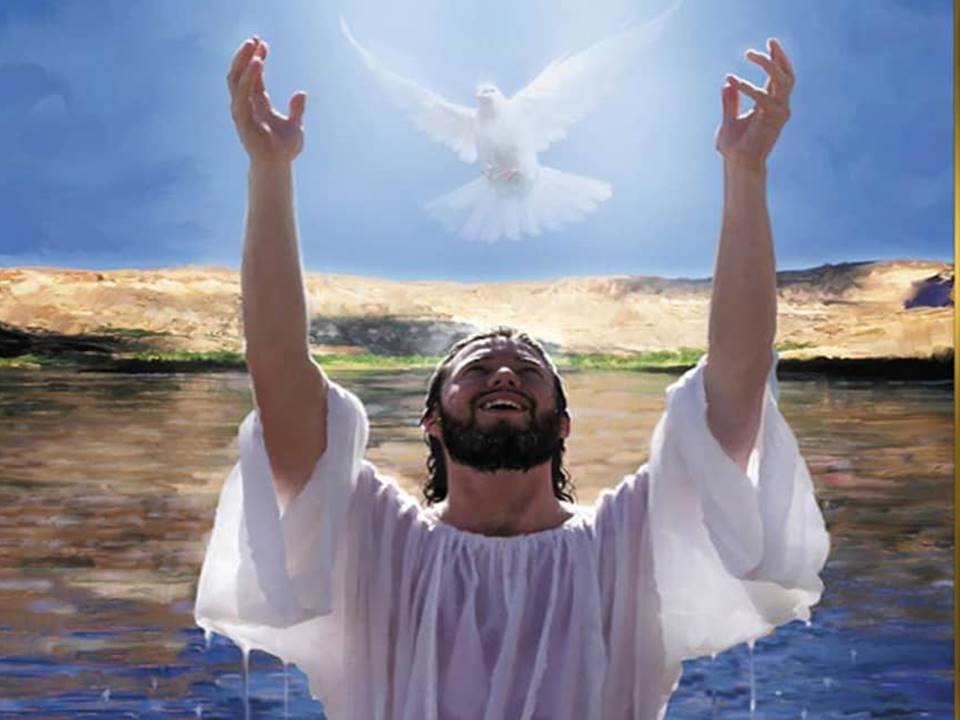
Extra Biblical Festivals in Christendom

Samuel Smith
23 Jan'19
5
LESSON 4
EXTRA BIBLICAL FESTIVALS IN CHRISTENDOM
You are welcome to another edition of Insights from God's Word, a Bible study programme that is committed to sharing God's Word by allowing the Bible to speak for itself.Friends, I want to thank the Lord so much for how far He has brought us. This study will be the last in our series on Christian Ordinances. In this last study, we will consider the topic: Extra Biblical Festivals in Christendom. Besides Christian Ordinances in Scripture such as Baptism, the Lord's Supper and Anointing Service, there are also other festivals that are very popular in Christendom today. Some of these extra biblical festivals include Christmas, Easter and Halloween. In this study, we will consider the origin of these three extra biblical festivals, and how we should relate to our family members, friends and the world at large during these festivities. The lesson has been divided into three sub-sections as follows:
1) CHRISTMAS

The birthday of Jesus is celebrated around the world today on December 25. However, when we go into the Bible, we find no such date associated with the nativity of Jesus Christ. In fact, the Bible makes it clear that when Christ was born, there were shepherds in the field keeping watch over their flock (see
From Werner Keller, we read the following in relation to the condition of Bethlehem around December 25: "At Christmas-time, Bethlehem is in the grip of frost, and in the Promised Land no cattle would have been in the fields in that temperature. This fact is borne out by a remark in the Talmud to the effect that in that neighborhood the flocks were put out to grass in March and brought in again at the beginning of November. They remained out in the open for almost eight months. Around Christmas-time nowadays both animals and shepherds are under cover in Palestine." - (The Bible as History, p. 354)
Beloved, the scriptural fact in
A) "The twenty-fifth of December is supposed to be the day of the birth of Jesus Christ, and its observance has become customary and popular. but yet there is no certainty that we are keeping the veritable day of our Saviour's birth. History gives us no certain assurance of this. The Bible does not give us the precise time. Had the Lord deemed this knowledge essential to our salvation, He would have spoken through His prophets and apostles that we might know all about the matter. But the silence of the Scriptures upon this point evidences to us that it is hidden from us for the wisest purposes." - (AH 477.2)
B) "In His wisdom the Lord concealed the place where He buried Moses. God buried him, and God resurrected him and took him to heaven. This secrecy was to prevent idolatry. He against whom they rebelled while he was in active service, whom they provoked almost beyond human endurance, was almost worshiped as God after his separation from them by death. For the very same purpose He has concealed the precise day of Christ's birth; that the day should not receive the honor that should be given to Christ as the Redeemer of the world--one to be received, to be trusted, to be relied on as He who could save to the uttermost all who come unto Him. The soul's adoration should be given to Jesus as the Son of the infinite God." - (AH 477.3)
At this point in our study, important questions that beg for answers are these: i) "If Christ was not actually born on 25th December, why is it that almost the entire world celebrates the day as the birthday of Christ? ii) Why is it that the majority in Christendom today observes this holiday even though the early church did not observe it? The answers to these questions are found within the sacred pages of history. It is a clear fact among scholars that 25th December is a date that has its roots deep within the pagan practices of the various cultures around the world.
Friends, the holiday of Christmas was born way back in ancient Babylon. It is associated with Nimrod (the rebel of God), her wife Semiramis, and her son Tammuz. When Nimrod died, Semiramis told the people that their king had gone to reside in the sun. When she got pregnant by another person, she told the people that it was the sunbeams from her husband that impregnated her. From this pregnancy was born the 'incarnate' child Tammuz on 25th of December. When Tammuz grew, we are told that Semiramis married him, declaring him to be the reincarnated Nimrod. Thus, the birthday of Tammuz (the reincarnated sun god) which fell on 25th December became a popular holiday in ancient Babylon.
Through migration, this story spread throughout the ancient world, and various cultures followed the tradition of the Babylonians in worshiping the sun, and celebrating the birthday of the rebirth of Nimrod on 25th December. When the Roman Empire ruled the world, the worship of the sun god was the primary religion. The sun deity of the Romans was called Saturn, which is another name for Nimrod. In honour to the sun god, the Romans introduced a weeklong lawless celebration which was called Saturnalia. This celebration began on the 17th of December and ended on the 25th of December. During this week Roman courts were closed, and all forms of lawless activities such as human sacrifice, rape, and violence were tolerated. It was also common to see people singing naked in the streets and from door to door during the celebration of Saturnalia. This is likely the precursor of Christmas carolling. Following the tradition of ancient Babylon, the Romans also placed Fir Trees in their worship temples during the period of Saturnalia. This is likely the precursor of Christmas trees.
Beloved, as the Christian religion grew in the Roman Empire, leaders found it difficult to convert pagans into the religion of Christ. To make it easy for pagans to accept Christianity, leaders of the church embraced the Saturnalia, making its high day of 25th December to represent the birthday of Jesus, the Sun of righteousness. From James Dixon Douglas, we read the following in relation to this point: "December 25 was the date of the Roman pagan festival inaugurated in 274 as the birthday of the unconquered sun which at the winter solstice begins again to show an increase in light. Sometime before 336 the Church in Rome, unable to stamp out this pagan festival, spiritualized it as the Feast of the Nativity of the Sun of Righteousness." - (The New International Dictionary of the Christian Church, page 223)
In the course of time, the Church began to celebrate mass for Christ on 25th December. This became known as Christ mass, and later Christmas. Thus friends, the festival of Christmas, which is celebrated on the 25th of December by millions of Christians in the world today is basically a pagan festival which has its roots in the pagan fertility rites of ancient Babylon. It is no wonder that today, the celebration of Christmas is still filled with gross immorality and lawlessness as was the case with the Saturnalia in Rome.
At this point in our study, an important question that begs for an answer is this: "How do we relate to family and friends during the period of Christmas festivities?" Beloved, in as much as we cannot partake of the frivolous partying, consumerism, Santa Claus, and other festivities of Christmas ourselves, we should not treat our neighbours with disgust because they celebrate a pagan festival. Instead of refraining from the world on this occasion, we should rather use the festival as a great opportunity for witnessing (see
A) "Christmas is coming," is the note that is sounded throughout our world from east to west and from north to south. With youth, those of mature age, and even the aged, it is a period of general rejoicing, of great gladness. But what is Christmas, that it should demand so much attention? This day has been made much of for centuries. It is accepted by the unbelieving world, and by the Christian world generally, as the day on which Christ was born. When the world at large celebrates the day, they show no honor to Christ. They refuse to acknowledge Him as their Saviour, to honor Him by willing obedience to His service. They show preference to the day, but none to the one for whom the day is celebrated, Jesus Christ." - (RH December 9, 1884, par. 1)
B) "As the twenty-fifth of December is observed to commemorate the birth of Christ, as the children have been instructed by precept and example that this was indeed a day of gladness and rejoicing, you will find it a difficult matter to pass over this period without giving it some attention. It can be made to serve a very good purpose." - (AH 478.1)
C) "The youth should be treated very carefully. They should not be left on Christmas to find their own amusement in vanity and pleasure-seeking, in amusements which will be detrimental to their spirituality. Parents can control this matter by turning the minds and the offerings of their children to God and His cause and the salvation of souls." - (AH 478.2)
D) "Christmas and New Year celebrations can and should be held in behalf of those who are helpless. God is glorified when we give to help those who have large families to support." - (AH 482.3)
E) "We are now nearing the close of another year, and shall we not make these festal days opportunities in which to bring to God our offerings? I cannot say sacrifices, for we shall only be rendering to God that which is His already, and which He has only entrusted to us till He shall call for it. God would be well pleased if on Christmas each church would have a Christmas tree on which shall be hung offerings, great and small, for these houses of worship." - (EGWE 253.5-254.1)
F) "Letters of inquiry have come to us asking, Shall we have a Christmas tree? Will it not be like the world? We answer, You can make it like the world if you have a disposition to do so, or you can make it as unlike the world as possible. There is no particular sin in selecting a fragrant evergreen and placing it in our churches, but the sin lies in the motive which prompts to action and the use which is made of the gifts placed upon the tree." - (AH 482.1)
G) "The tree may be as tall and its branches as wide as shall best suit the occasion; but let its boughs be laden with the golden and silver fruit of your beneficence, and present this to Him as your Christmas gift. Let your donations be sanctified by prayer." - (AH 482.2)
H) "Will you not arise, my Christian brethren and sisters, and gird yourselves for duty in the fear of God, so arranging this matter that it shall not be dry and uninteresting, but full of innocent enjoyment that shall bear the signet of Heaven? I know the poorer class will respond to these suggestions. The most wealthy should also show an interest and bestow their gifts and offerings proportionate to the means with which God has entrusted them. Let there be recorded in the heavenly books such a Christmas as has never yet been seen because of the donations which shall be given for the sustaining of the work of God and the upbuilding of His kingdom." - (AH 483.1)
Friends, I believe many of you will be shocked to know that these words actually came from the pen of inspiration. But we can relax when we contemplate on the various contexts in which these quotes were given. From the contexts in which we find these quotes, it is clear that Sister White was not advocating that we embrace the pagan celebration of Christmas. However, she was concerned about our duty of gratitude to God, and our responsibility towards our fellow men during this festive period when the year was about to end. From the counsels of Sister White, I believe it is not wrong for church members to give gifts especially to the poor, and also accept gifts from people during the Christmas festivities (see AH 478.4; AH 479.1); for the year is just about to end, and an expression of love to a fellow human being should not be interpreted as negative or worse still pagan.
Beloved, as Sister White clearly stated, it wouldn't be also wrong for a particular church to set up a Christmas tree, and invite members to hang their offerings of beneficence upon it for the up building of God's kingdom. In fact, there is nothing wrong in particular if we decorate our homes or worship centres with flowers and fragrant evergreen trees at any time of the year. However, such actions will be sinful if the motive for acquiring them is to make them objects of worship (see
2) EASTER

Easter Sunday is celebrated across the world today as the day Christ was resurrected from the dead. However, the Bible does not provide any information for the celebration of such a festival. History makes it clear that the celebration of Easter, just like Christmas, has its origin from the pagan cultures of the world. The celebration of Easter is associated with the celebration of the goddess Eostre during the time of the Spring Equinox in the Northern Hemisphere; a time when the length of the day and the length of the night are equal. The period was celebrated with great excitement as the people anticipated the coming of spring, and the cessation of the cold months of winter.
During this same period of the Spring Equinox, several pagan cultures also celebrated the return of the sun god from the underworld. The story of how the sun god conquered the powers of darkness during the period of spring was seen to relate beautifully with the story of the death of Jesus and His resurrection three days later (see
Thus friends, even though Easter has been branded as a Christian festival, secular history makes it clear that the festival has its origin from paganism. However, unlike Christmas, where the festivities are close to the end of year, and requires God's people to show special gratitude to their Maker, and a special care for the poor; the timing of Easter, and its pagan symbols of the hare and eggs provide no such relevance. However, as God's people with the commission to reach the world with the everlasting gospel, we cannot close our eyes to the great opportunities for outreach that the period of Easter presents to us. As the entire world reflects on the sacrifice of the Saviour, and His resurrection three days later, we have a solemn duty to tell the world about Jesus, His life, His sacrifice, His resurrection, His promise, His work of atonement, and His imminent second coming.
3) HALLOWEEN

Just like Christmas and Easter, the celebration of Halloween is also embedded in the pagan cultures of the world. Halloween is celebrated on the 31st of October each year. This Christian festival originated from the ancient Celtic festival of Samhain. The festival of Samhain marked the beginning of the winter season of cold, darkness and decay. The Celtic pagans believed that on the Eve of October 31, the souls of the dead were allowed to visit the living. To appease the spirits, people will leave extra places of food at the dining table or at an area where the spirits can easily access them.
Some also wore animal skinned costumes so the hovering spirits would mistake them for one of their own. During this festival, huge bonfires were also set up to ward off evil spirits, demons and zombies who were believed to be hovering around the community of the living. Ironically, this period was also utilised by the pagans to make divinations concerning issues such as marriage, health and even death. It is interesting to learn that people dressed like the spirits during the celebration, and moved from house to house for treats of food. Those who generously donated were promised with prosperity, while those who treated the wanderers unkindly were cursed with diverse forms of troubles.
Friends, just like Christmas and Easter, the pagan festival of Samhain also found its way into Christendom. We are told that in the eighth century, Pope Gregory III designated November 1 to honour all the saints of the church. This day came to be known as All Saints Day, and the next day, November 2 was celebrated as All Souls Day. Moreover, the evening before All Saints Day which fell on October 31, was celebrated by the church as All Hallows Eve (and later Halloween). It is important to note that many of the ordinances that are performed during these so-called Christian festivals were incorporated from the traditions of the Celtic festival of Samhain. Beloved, unlike Christmas and Easter which affords us an opportunity to witness about Jesus, the festival of Halloween presents no such opportunity. Rather, the festival only promotes the long held deception of Satan as embedded in the immortality of the soul doctrine (see
Exhortation: In our desire to reach the world with the message of salvation during popular extra biblical festivals, the following words of Christ remain good counsel for us today: "Behold, I send you forth as sheep in the midst of wolves: be ye therefore wise as serpents, and harmless as doves" (
Stay blessed and keep shining for King Jesus.
Maranatha!
Powered by White Throne Ministries






